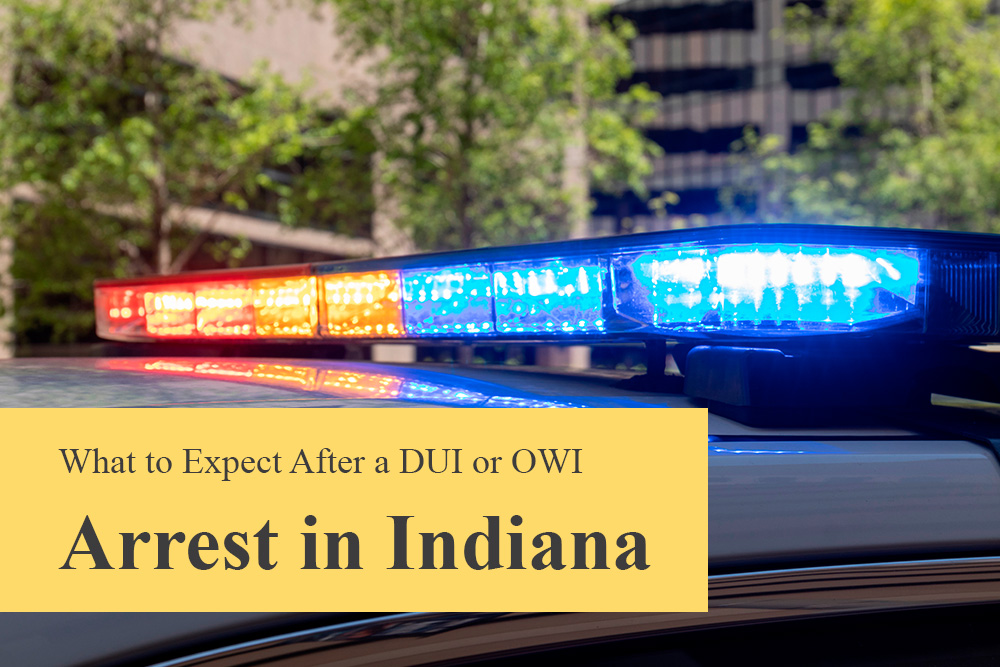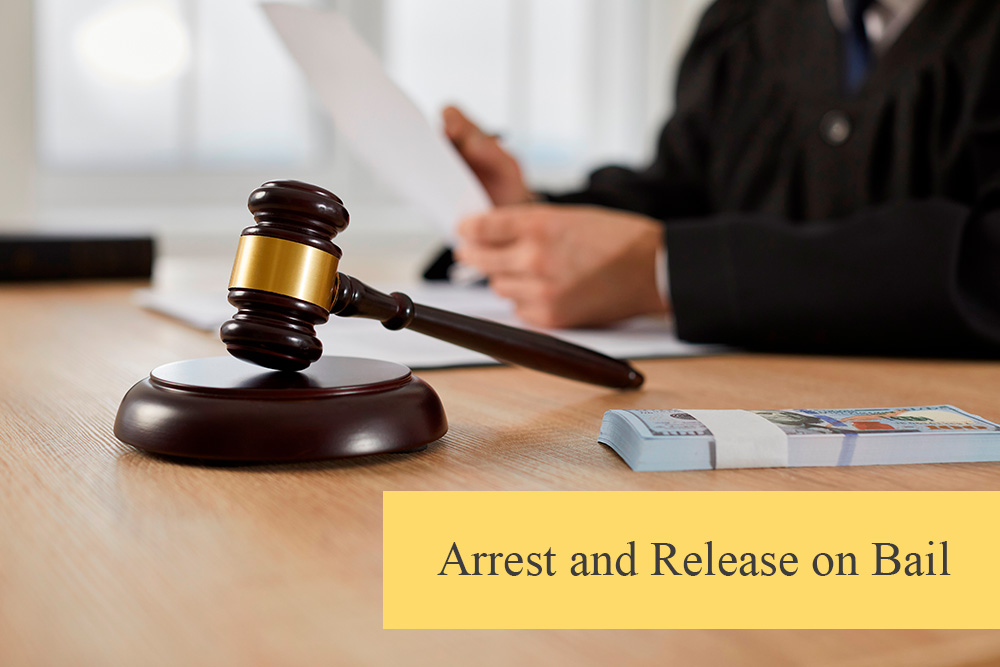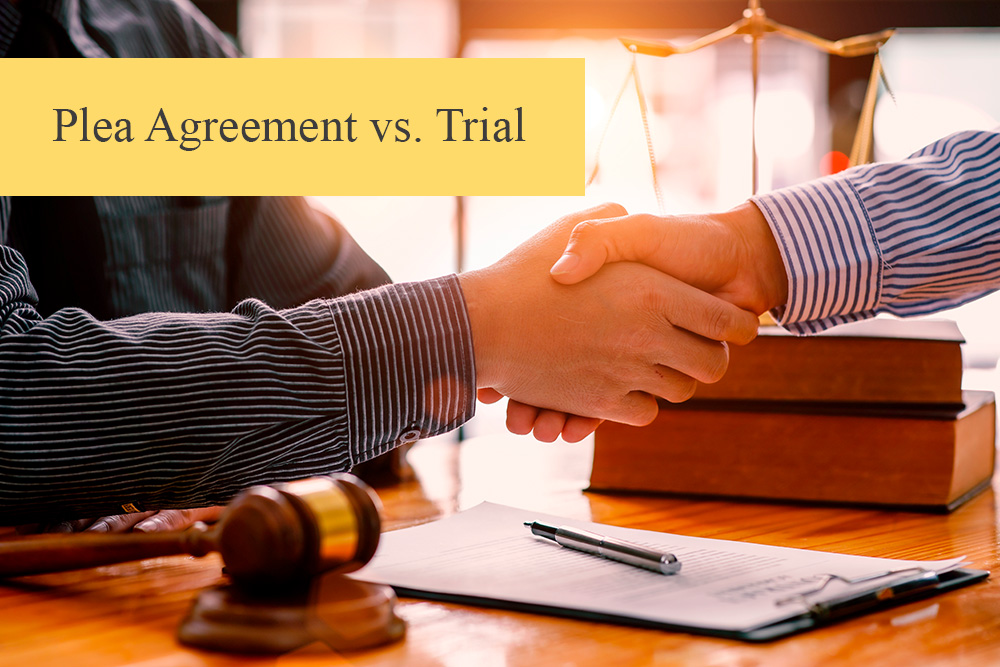What to Expect After a DUI or OWI Arrest in Indiana

Arrested Due To DUI/OWI?
Drunk and drug impaired driving arrests are common occurrences throughout Indiana. People accused of this offense will enter a legal process that can deliver serious consequences, including prolonged loss of driving privileges and jail time. For these reasons, defendants frequently search for a DUI lawyer near me for guidance concerning their criminal case.
In Indiana, driving under the influence (DUI) is formally known in the legal system as operating a vehicle while intoxicated (OWI). This criminal charge applies to drivers with a blood alcohol concentration (BAC) of 0.08% or higher or whose chemical testing confirms the presence of a Schedule I or II controlled substance or its metabolite.
Prepare to Protect Your Interests

A DUI attorney aids a defendant by explaining how to meet obligations imposed by the criminal justice system and the Bureau of Motor Vehicles (BMV). You will have to attend, or have your lawyer attend, multiple hearings as the government processes your case. Additionally, the best DUI attorney will defend you by challenging unclear evidence whenever possible and protecting you from unfair treatment.
Any individual arrested for OWI will progress through the following steps. Fortunate defendants may achieve a case dismissal, but others will finish their cases with a plea agreement or trial.
Arrest and Release on Bail

If law enforcement suspects that you are operating a vehicle while intoxicated, you will be taken into custody and held until you are screened and accepted on a pre-trial release program or post bond. Upon your release, you will be provided notice of your initial hearing where the Judge will advise you of your charges and determine if there is probable cause that you in fact committed the OWI offense.
BMV Suspension and Specialized Driving Privileges
At the initial hearing, if the Judge finds probable cause that you committed a DUI offense, then the Court will notify the BMV. If this is your first OWI offense, the BMV will suspend your driver’s license for a period of 180 days until further notified by the Court. People who refuse a chemical test lose their licenses for one year, and people who refuse a chemical test with prior DUI offense may lose their licenses for up to two years.
It is important that you contact an OWI or DUI lawyer prior to your initial hearing date. The best OWI attorney will notify the Court of your intention to file for Specialized Driving Privileges or SDP. The petition for SDP has to be filed within 10 days from your initial hearing or order waiving your initial hearing. This will pause the automatic BMV license suspension until the Court makes a determination on your request for Specialized Driving Privileges.
It is important to note that if you refused the chemical test, then you are not eligible for Specialized Driving Privileges.
Learn more about these driving privileges after license suspension.
Initial and Pretrial Hearings
As previously mentioned, the Court will set an initial hearing to advise you of your rights, determine if there is probable cause that you committed an OWI and enter a plea of not guilty on your behalf. In addition, the Court will provide dates for your pre-trial, bench trial or jury trial and deadlines for certain motions.
The best DUI attorney may be able to show there is no probable cause that you committed an OWI to avoid a license suspension or timely file a request for Specialized Driving Privileges.
During this pre-trial phase of an OWI case, the best OWI attorney may be able to challenge the stop or the chemical test and succeed in suppressing certain evidence, which may lead to the dismissal of your DUI case.
After review of the evidence, you and your DUI attorney will consider whether to negotiate a plea bargain or proceed to a trial.
Plea Agreement vs. Trial

A majority of OWI cases are resolved by plea agreement. A DUI plea agreement is an agreement between you and the State of Indiana that is subject to Court approval. For pleading guilty to an OWI the State will agree to terms such as length of a license suspension, probation or time in jail. If the Court approves an OWI plea agreement, then the Court is bound to the terms of the plea agreement and will sentence you accordingly.
You may have certain arguments or evidence in your OWI case that you decide to proceed to trial. At a DUI trial the State of Indiana has the burden of proof and must prove each element of the offense beyond a reasonable doubt.
Administrative vs. Criminal Penalties
The BMV and criminal court may each apply penalties independent of each other.
BMV administrative penalties are limited to license suspension or revocation and fees associated with reinstating the license.
Upon criminal conviction, a court can apply a jail sentence, charge fines, and suspend the driver’s license. Sentencing guidelines for a first-time OWI conviction with a BAC between 0.08% and 0.14% is up to 1 year in jail, court costs and fines. Jail time and fines go up with subsequent convictions and aggravating circumstances, like having a minor in the vehicle or causing bodily injury. Additionally, courts often require convicted people to pay for and attend victim impact panels.
Don’t Skip Legal Advice
The representation of a DUI attorney could shield you from the harshest penalties and help you regain driving privileges. In some cases, a strong defense might eliminate an OWI conviction. You can find a DUI lawyer near me in Westfield, Indiana, at Webster & Garino, LLC. We always work hard to produce the best possible outcomes for our criminal defense clients. Please call us at 317-565-1818 or contact the office today.

